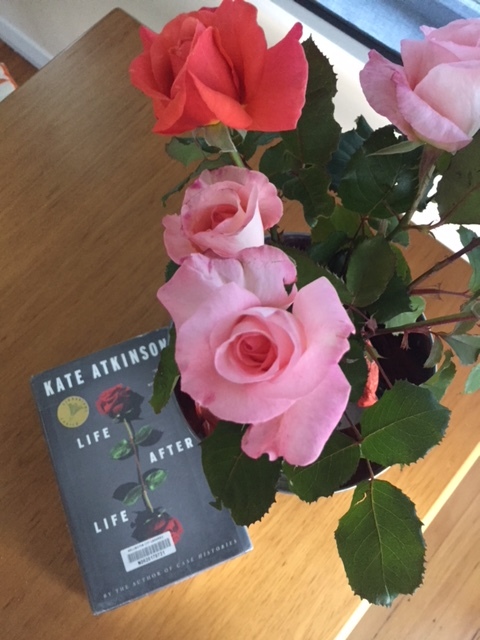What if you could live your life over and over? What small and seemingly insignificant things could you change, and what could you keep the same?
Kate Atkinson takes this concept and turns it into a literary novel, chronicling the many lives of Ursula Todd, born in 1910. Every time Ursula dies, we return to her birth scene, told from different viewpoints (the village doctor, her mother, a midwife who gets caught in the snow and never makes it there, a cat!) on a night when a blizzard sweeps across her English village.
Sometimes Ursula makes it through to childhood, only to be drowned in the sea or slip on the roof tiles of her house, other times she makes it all the way through to World War Two where she’s always involved somehow in the London Blitz – either as part of a rescue crew, or dying in a bomb shelter (the same one the rescue crew excavate). The ultimate question is will Ursula kill Hitler before he starts a world war, thus saving her favourite brother Teddy from being killed?
I loved the childhood scenes that Atkinson evokes of Ursula and her siblings on a hot summer English day, playing with their neighbours, romping around paddocks with their dogs. Food plays a big part in evoking different memories, like veal cutlets always being served before their young neighbour Nancy is murdered, or Ursula and her brother Teddy sculling a shot of champagne and eating cake on her 16th birthday.
When Ursula meets different men (or they instead pass her by) her life ends up shooting in completely different directions. There’s a strong theme throughout the book that an adverse event in her childhood can spark a mountain of misery later in life.
In one version of her life, Ursula’s brutish brother’s friend sexually assaults her. He shakes her confidence so badly that she goes on to marry a man who emotionally and physically abuses her. This part of the book was really bleak and got me thinking about whether people are prone to a domino effect of bad life events, because of an event like this one. Could Ursula have changed this moment? Does she have any agency over it? She does change it in a subsequent life, but so many people can’t.
Ursula doesn’t seem to be aware that she lives many times over, only through feelings of premonition and déjà vu does she alter her life’s course. Whether Ursula ever shoots Hitler seems to be the driving force behind the whole story. I found myself always waiting for that scene to appear.
In the end though, it is just one little part of a life lived over and over. The impetus to find out whether Hitler dies before he can start World War II feels less important somehow, than Ursula’s relationships with her family and friends, and finding joy in her many lives.
